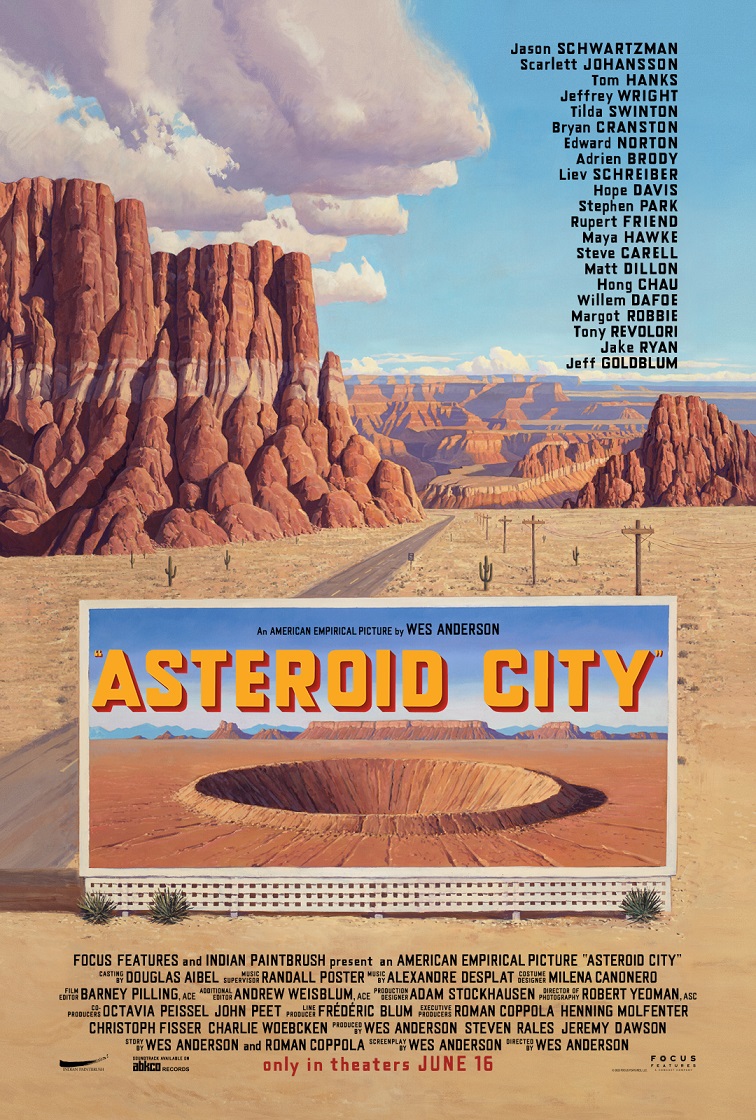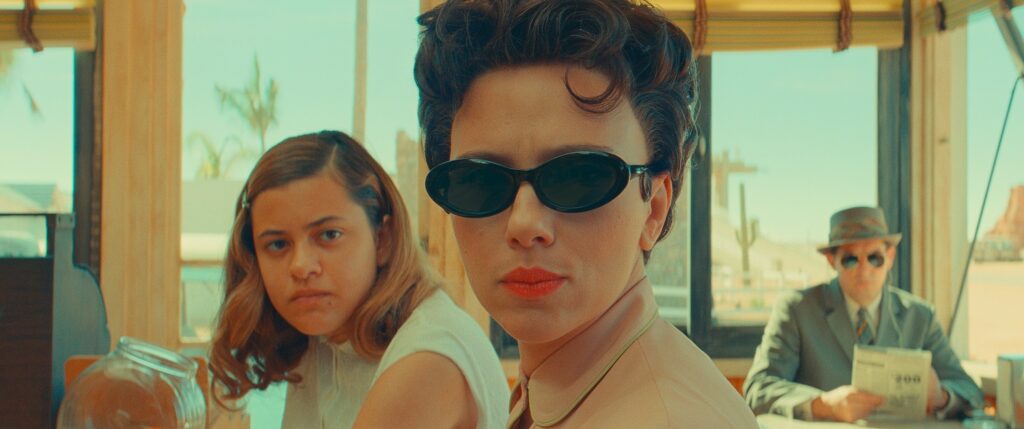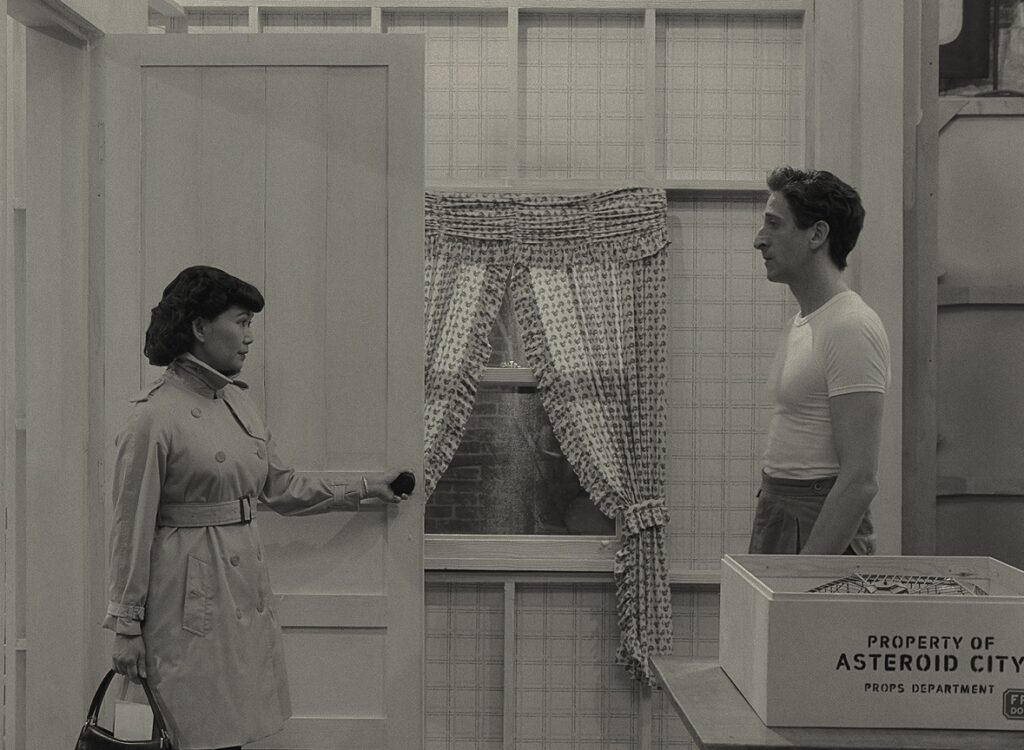
Certain filmmakers have a particular style that makes their films instantly recognizable to audiences, be it a color palette, troupe of regular actors, or a narrator to anchor their stories. Wes Anderson utilizes all these and many more, and each of his projects adds a handful of new performers to his already extensive ensemble as he gleans humor from wacky anachronistic concepts.
Asteroid City is a typically indulgent and mesmerizing creation, one that combines a multitude of ingredients for a reliably delirious viewing experience.
There are layers to Asteroid City that unveil themselves over the course of the film. A narrator (Bryan Cranston) introduces a television program that is itself a performance of a play, and in so doing also shows the author Conrad Earp (Edward Norton) hard at work on his masterpiece. As he, the director, Schubert Green (Adrien Brody), and some of the actors are shown, the events of the story-within-a-story also begin to unfold, as the recently widowed Augie Steenbeck (Jason Schwartzman) arrives in a small highway town in the 1950s with his four children for a meeting of the Junior Stargazers.

There is an otherworldly and fantastical quality to all of Anderson’s work, but this film finds a more direct connection to the stars and extraterrestrial life as a quintet of highly advanced teenagers gathers together to present their incredible inventions. The eccentric Dr. Hickenlooper (Tilda Swinton) has her own vision of the skies and the stars, and she must balance her own intrepid nature with the orders of General Grif Gibson (Jeffrey Wright), the government representative overseeing the event. With a set so open and a landscape so sparsely populated, it’s only natural that these characters would look upwards for some sense of excitement and fulfillment to enhance their otherwise mundane and static lives.
Asteroid City operates on a number of levels, not just when it comes to its storytelling style. The brewing friendship and potential romance between Woodrow Steenbeck (Jake Ryan) and Dinah Campbell (Grace Edwards) is an enticing plotline, one that once again proves Anderson as a masterful director for talented children.
Their parents, Augie and actress Midge Campbell (Scarlett Johansson), also have their own narrative, which tangentially includes the other parents, played by Liev Schreiber, Hope Davis, and Stephen Park. And then there are the people putting on the production, who have their own backstories, motivations, and interpersonal struggles.

This is a film, marketed as “An American Empirical Picture by Wes Anderson,” that feels so distinctly like Anderson that fans will surely find much to appreciate in it. It leans into its peculiarities and has a particular fondness for the tangential, often getting distracted by a seemingly irrelevant subplot before tying it all back together, unless it happens to be merely a musing that’s not all that germane to everything else that is happening. The familiar buoyant underscore by Alexandre Desplat is comforting as it grows louder while certain characters are speaking, a reminder that, while each of Anderson’s films are not linked through some cinematic universe, there is still a great bond that connects them all to each other.
Anderson makes use of many of his regulars in this ensemble, and it’s particularly delightful to see Brody and Schreiber in these parts, as well as the young and talented Ryan. New additions like Tom Hanks, Steve Carell, Maya Hawke, and Cranston feel fitting, and Johansson is particularly wondrous in a deliberate and contemplative turn as a celebrity who knows that she’s constantly being watched. Not everything about Asteroid City completely works, but that’s hardly a detractor since part of the enjoyment factor is the bewilderment and confusion that any of his wild imaginings is sure to conjure.
Grade: B
Check out more of Abe Friedtanzer’s articles.
Asteroid City opens in select theaters on Friday, June 16th and everywhere Friday, June 23rd.

